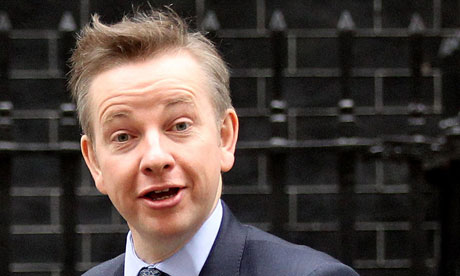You don't need to be a 'tiger mother' to think most children are not being stretched enough
Wednesday, 4 April 2012
They're usually blonde. They're usually these girls who whoop and leap for the cameras, blonde, and pretty, and thin. There must be some short, fat, spotty, and even male 18-year-olds who do so much better than they expected. Who do, in fact, so well that they behave as if they've won The X Factor, or the lottery. But usually it's girls, and blonde, pretty girls, who give us the message that A-level results are better than they've ever been before.
You can, according to the Cambridge Assessment exam board, get the kind of results that make you whoop and leap, and still not know how to spell, or structure a sentence. You can, apparently, get the kind of results that make your parents proud, and still not know how to think. And because so many students can't spell, or think, universities are having to teach them. Sixty per cent of them are putting on extra courses to teach undergraduates what they should have learnt at school.
Perhaps it's not surprising that the man who's in charge of education in this country is a little bit worried. "I am increasingly concerned that current A-levels," said Michael Gove, in a letter to the exam regulator, "fall short of commanding the level of confidence we would want to see." It is, he said, "more important" that students start their degrees with "the right knowledge and skills" than that "ministers are able to influence the curriculum". He was, he said, going to hand control of the syllabus to exam boards and academic panels made up of senior dons. He hoped, he said, that the new A-levels would start in two years. He hoped, and so do I.
It's lovely, of course, to have so many pretty girls so happy to have done so well. But it isn't lovely that so many of them are struggling at university, and it isn't lovely that so many people with good GCSEs are having to be taught basic numeracy by employers shocked to find they can't add up. And it isn't lovely that this country is slipping down the world education league tables. In the last one, Britain had dropped to 25th place for reading, 28th for maths, and 16th for science. For the sixth biggest economy in the world, that doesn't sound all that good.
There are all kinds of reasons why standards have dropped. It would, for example, be quite strange for academic rigour in our schools to have increased at a time when academic rigour in our culture has shrunk. It would also be quite strange if schools that are judged on their performance in exam league tables didn't encourage their students into media studies or drama, rather than Mandarin or maths.
There were good reasons for widening the scope of subjects taught in schools, and giving more options to students who didn't look as though they were going to shine academically. It's surely better to leave school with a piece of paper saying you can do something than to leave with nothing at all. And there were good reasons for introducing league tables. If you want people to raise standards, you need them to show they have. But it does mean they're likely to focus less on learning, and more on results.
Whatever the intentions, the result has been that too many of our children aren't prepared for university, or life. The ones who are going to university aren't doing the subjects, like science or engineering, we need them to do if we don't want all our industries to go to China. The ones who aren't going to university aren't getting enough skills to do much at all. And if the ones who do go to university don't develop our industries, the ones who don't will be fighting for even fewer jobs.
"Children," said a man at a conference I went to last week, "aren't the problem. They are," he said, "very interested in anything that adults do. Teenagers," he said, "are desperate for direction. When they ask 'why should I do this?' you have two choices. Either walk out of the room, or tell them."
The conference was on "the manufacturing economy", and the man was a head of physics at a big South London comprehensive, called David Perks. They had, he said, managed to get 100 pupils to do A-level physics. There were, he said, equal numbers of girls and boys. Many of them, he said, were planning to go on and study engineering.
Educating children in a culture that doesn't seem to value academic achievement isn't easy. Nor is motivating them when, if they don't work, they won't starve. But you don't need to be a "tiger mother" to think that most of our children aren't being stretched enough. And, in an increasingly cut-throat global marketplace, it's our children who will suffer, not us.
Do we really believe the toffs who are running this country are brighter than the rest of us? Or that more money means a higher IQ? Do we really want state-educated pupils, who are 93 per cent of the population, to be let into the best educational institutions only through social engineering?
If we don't, we need to start believing that all our children can do better. And you don't help children do better by feeding them lies.

